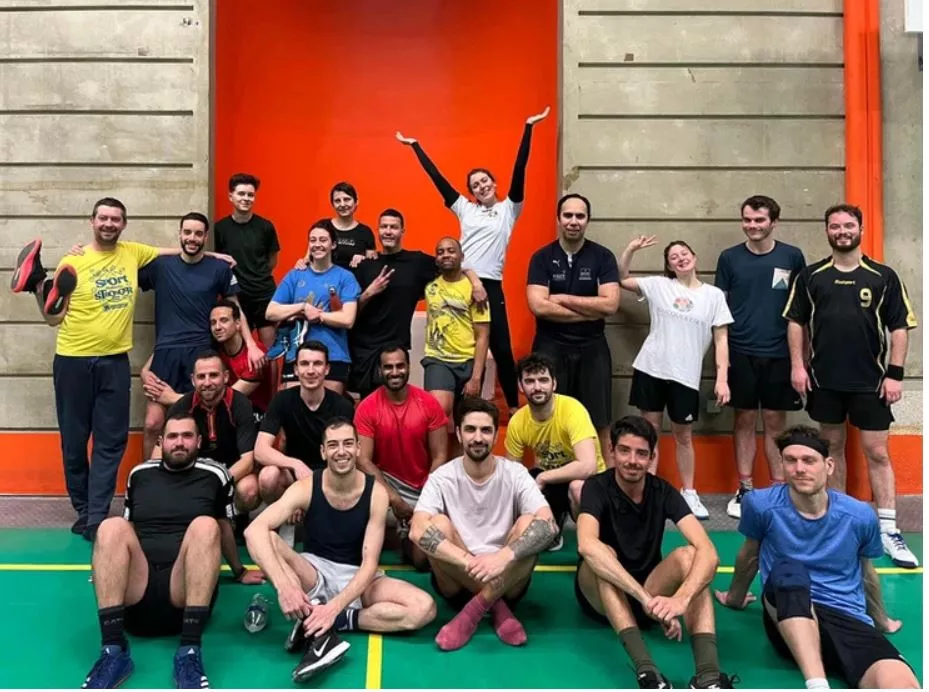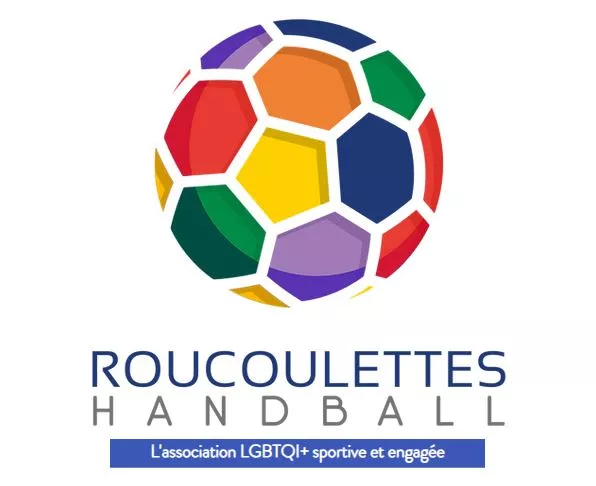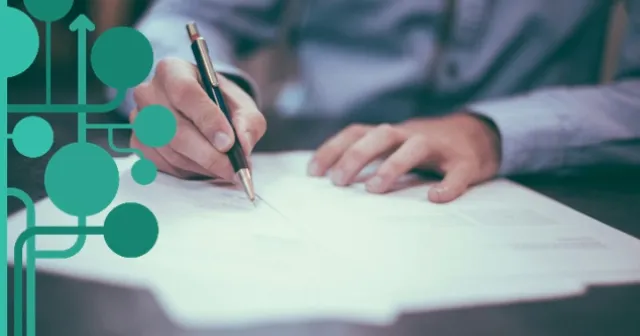“Roucoulettes Handball”, an inclusive handball team.
[Translation : EPALE France]
SPORT FOR ALL, INCLUSIVE SPORT
There have always been two sides to sport. The competition and performance of experienced athletes is often the work of “professionals” or very willing amateurs who enjoy and are committed to the challenge, success and the continual improvement of their abilities. Local, national and international competitions are organised to allow people to meet and compete with each other.
There are also sporting activities undertaken for pleasure, for health and to feel good, doing an activity in which the concept of “winning” is present, but where the game and the pleasure of being together are paramount.
These two types of sport are not necessarily mutually exclusive.
Complementary aspects are emerging. The athletes of tomorrow started out playing for clubs in towns, rural areas or regions.
Inclusive, civic-minded sport has been developing for over fifty years now. Federation managers have realised that sport can be a vehicle for social inclusion, for sharing between young and not-so-young people of all origins, and that it is a decisive factor in improving life in society. This civic-minded view of sport has been set up in the form of thematic sports federations (such as those for judo, rugby, etc.) and so-called affinity sports federations. Examples in France include the UFOLEP and the FSGT.
The UFOLEP www.ufolep.org describes itself as follows: The UFOLEP sees sport as having a social dimension, responding to current issues such as sport for health, sport for the disabled and sustainable sport, with core values of solidarity, fair play, secularism and civic values.
The FSGT’s origins and values are presented on its website: https://www.fsgt.org The Fédération Sportive et Gymnique du Travail (FSGT), which is certified in both sport and popular education, has 240,000 members, 4,200 clubs and offers around one hundred physical, sporting and artistic activities, both competitive and non-competitive. It was founded in 1934 as part of the workers’ sports movement and in the fight against fascism, and promotes the right of access to sport for all, with the aim of developing the content of activities, associative life and training adapted to the needs of the population.
These two federations are members of the ISCA: International Sport and Culture Association https://www.isca.org A non-governmental, not-for-profit organisation open to associations working in the field of sport, leisure and physical activities.
AN EXAMPLE OF AN ASSOCIATION: “ROUCOULETTES Handball”, a handball association
I met with Jorge Caje Espinola, President of “Roucoulettes Handball”. First, I want to explain the name. It comes from a technical term in handball. A “roucoulette” is a highly technical shot that involves flicking your wrist to give the ball a spin effect.

The interview was very enriching and I was also able to meet two of the people taking part in training.
David Lopez: Jorge, Roucoulettes Handball is an LGBTQI+ handball association based in Paris. Can you tell me about the history and values of the association?
Jorge Caje Espinola: The association was created in 2018, and made its real sporting debut in 2019. Initially, the members of another LGBTQI+ multi-sports association wanted to focus on a single sport and, above all, implement a more militant, more political vision. They also wanted to concentrate on strong values.
We certainly want LGBT people to speak out, but we also want to take action in the fight against discrimination, all types of discrimination. We welcome men, women and people of all genders. Age is not a criterion. At present, our members range in age from 23 to 65. Height and weight do not come into it. Neither does belonging to a certain social group. Here, we meet people we wouldn’t have met otherwise.
Above all, we want to create a “safe space”, where there is no room for judgement and violence.
When we started out, there were 35 of us. Today, the association has 120 members, 25% of whom are women. When a member comes to see us, we don’t ask questions about their sexual orientation.
We train four evenings a week in beginners, intermediate and advanced groups.
We also organise 3-hour training workshops with SOS HOMOPHOBIE to raise members’ awareness of sexism.
Finally, our 14-member Board of Directors wants to highlight the difference between being a club and what we are: a militant and friendly sports association.
David Lopez: Jorge, can you tell me about your sporting links in France and Europe?
Jorge Caje Espinola: We are members of the French Handball Federation and the FSGT (Fédération Sportive et Gymnique du Travail). Our affiliation to both these organisations demonstrates our determination to be an example of integration.
We take part in competitions organised by the FSGT. The idea is to respect each other’s bodies through mixed matches. This is a very important point for us.
We also take part in tournaments organised by the LGBT+ Sports Federation, which defends the principles of inclusion in sport. For example, on 20 April we took part in a tournament in tribute to Robert Badinter.
In Europe, we take part in events with other LGBTQI+ associations in Spain, Sweden, Germany and Norway. Being proactive and reaching out to others is in our DNA.
I then met two members and handball players, Romane and Julien. I asked them about playing sport with people of different ages, genders and weights.
Romane and Julien: The key to playing, and playing well, is not gender, it’s size. As a result, in the game, we learn to control our strength. Of course, there are physical differences, but you have to adapt. We like this adaptation. It makes us stronger and more united. Playing with the other person in mind, whether they are a member of your team or an opponent, helps us to rise above ourselves. As a result, as has been said, we feel at home in the association, we are in our place.
In some tournaments organised by other associations, there may be positive discrimination rules (girls’ goals count double, for example). We prefer to build our know-how on mutual respect.
David Lopez: Finally, Jorge, are you looking to take your European exchanges further?
Jorge Caje Espinola: Yes, of course, as I was saying, meeting other people is in our DNA. We have been in contact with clubs and associations in other countries. But we’re interested in the idea of going further than just a weekend of matches. Knowing and exchanging with other associations from different countries on this essential notion of inclusive sport would be a plus for “Roucoulettes Handball”.
Finally, to complement and tie in with the Olympic Games, Roucoulettes Handball will be running introductory handball sessions, open to all, at the Arènes de Lutèce in Paris; 8 Rue de Navarre, in the 5th arrondissement. Sessions will be held on:
Thursday 1 August 2024 7 pm to 9.30 pm
Thursday 8 August 2024 7 pm to 9.30 pm
Tuesday 13 August 2024 7 pm to 9 pm
Friday 23 August 2024 7 pm to 9.30 pm
David Lopez, EPALE France Expert






Toujours de jolies…
Toujours de jolies initiatives à nous faire découvrir David !